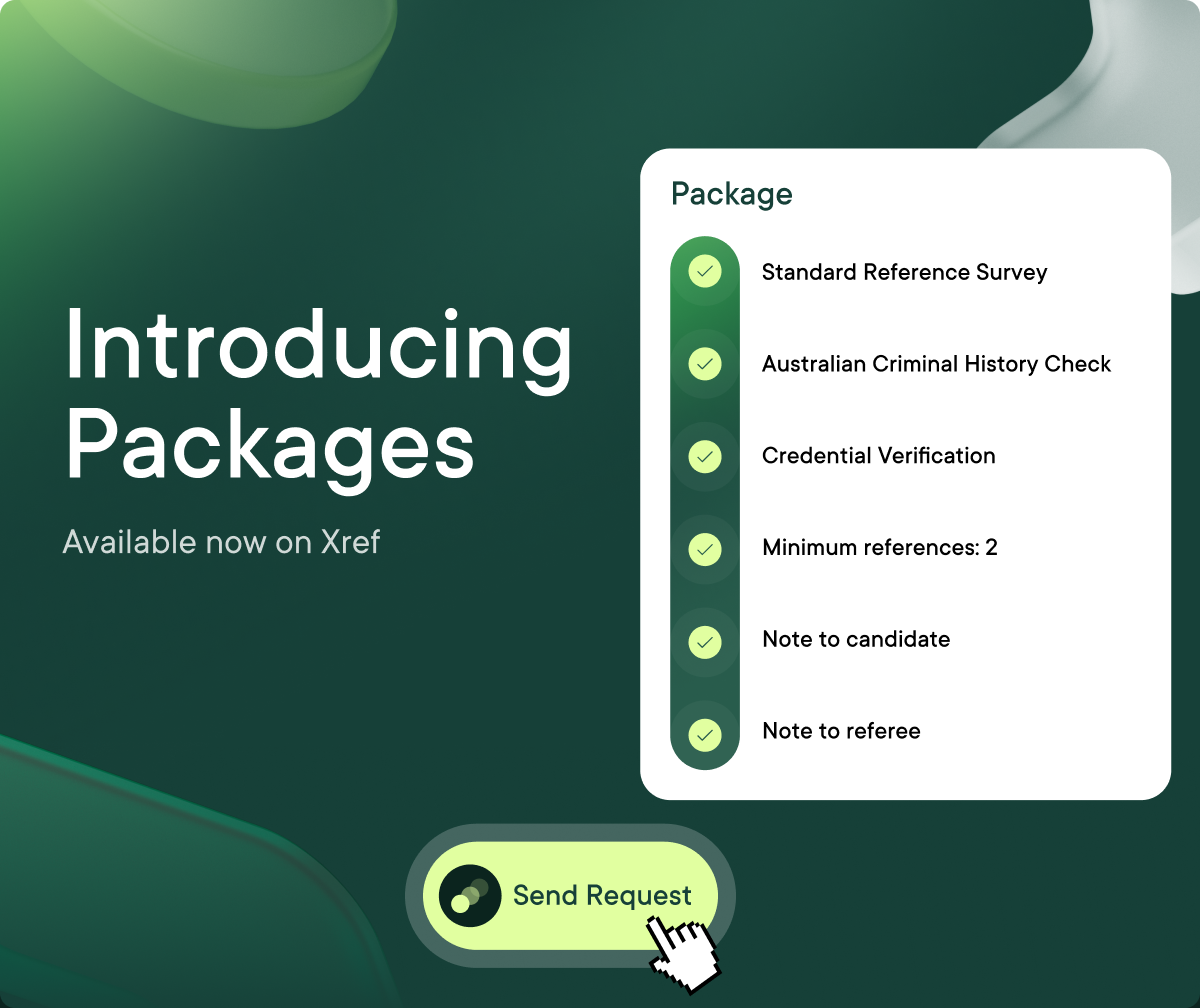


Give your people a voice with a tailored Xref Engage survey.
Increase retention and reduce turnover with quick employee feedback from an Xref Pulse Survey.
Employment reference checking is an essential element of the hiring process. COVID-led remote hiring has increased the complexity of finding the right candidates. Now more than ever, you need to be able to trust who you hire as working from home might just remain the new normal. But building a successful team, either in person or remotely, requires us to know more about a candidate than the list of experiences and traits on their resume. Even if someone looks perfect on paper, it’s worth going the extra mile to check that they are the right fit for the role.
An employment reference check provides independent insights into a candidate’s past work performance, to learn about their strengths and weaknesses. It validates the qualifications they claim to have and the length of experience they have had in previous roles. Hiring managers expect good references with fast response times, having a reference request process in place saves time and facilitates the hiring decisions.

A reference check is only as valuable as the questions asked. To create the best reference questionnaire, we recommend a mix of essential, personal and role-specific questions. Here is a list to get you thinking:
Essential questions
To create a strong foundation, we recommend that a reference template includes at least five essential questions that account for a candidate's previous employment and performance.
For example, an essential question could include: “Please detail the nature of your working relationship (i.e. direct boss, etc).” and “What roles do you think they would be suitable for in the future?”.
Personality based questions
A great reference should also include a set of personality-based questions as an indication of whether the candidate would fit into the workplace culture and meet the demands of the work environment.
For example, a personal attribute question could include: “Can you please rate and describe their ability to use initiative when problem-solving?” and “Please rate and comment on their ability to learn”.
Role-specific Questions
These questions point more to previous role responsibilities and skills, and how well the candidate fulfilled them.
An example of a role-specific question could include: “Please rate and comment on their computer skills and ability to adopt new software.” and “Can you comment on the level of supervision they required? How well did they work autonomously?”
And while great references include questions from these three categories, we also have a tried and tested formula for creating the best questions, we like to call it…. BACON!
Ensuring your reference templates include the best mix of questions, and your questions are BACON can be tricky but our dedicated template builder tool takes all the hassle out of creating the perfect, tailored template - try it for yourself.

A personal reference is someone the candidate hasn’t worked with and can discuss their individual values; mainly requested for graduates or those with less work experience. A professional reference is provided by a former boss or manager who can vouch for a candidate's employability or skills. Candidates searching for a job are normally familiar with checks for employment, after all, not so long ago, letters of reference were very popular. Most recruiters prefer contact information for two professional references.
Some companies have a standard ‘no referral policy’, which means that employees cannot provide a verbal or written reference for previous colleagues. Organisations often opt for this approach to avoid defamation claims if a former employee tries to state that an adverse hiring decision came as the result of a reference provided.
While there are alternative approaches to obtaining employment references such as asking for the employment tenure, character reference or performance review feedback, we would always advocate for the value of a full, detailed reference check. When conducted online, reference checks are provided verbatim, nothing is taken out of context or can be misunderstood. So, as long as the information provided by the reference provider is true and accurate, they are at no risk of a legal challenge.
If a prospective employer has gathered information about a potential candidate, the applicant has the right to access those reports and can ask the employer directly to share them. It is then at the employer's discretion to decide whether or not they are happy to share the information.

Some recruiters may argue that the traditional phone-based method is a more human approach to reference checking. However, here are five key reasons why online reference checking is the safer, more efficient alternative:
So, the next time you weigh up your candidates, make sure you have a robust employment reference checking process in place. We recommend an automated, digital reference checking approach that will do the work for you and give you valuable insights on your new hire. Your due diligence could be the difference between a great new addition to the team and having to rehire after a couple of months.
We’ve been in the industry for 10 years and understand the pain points of reference checking. Our industry experience drives us to improve our product and deliver a best-of-breed solution to our customers. If you’d like to know more, get in touch for a demo today.
